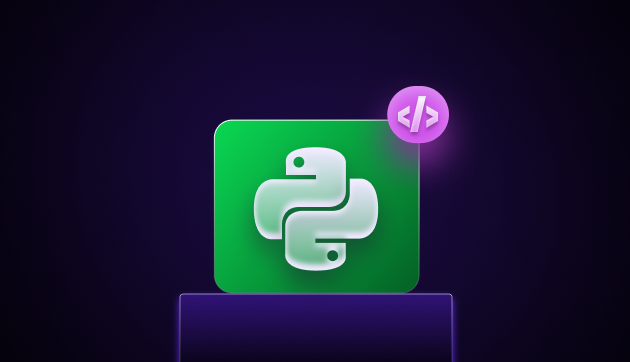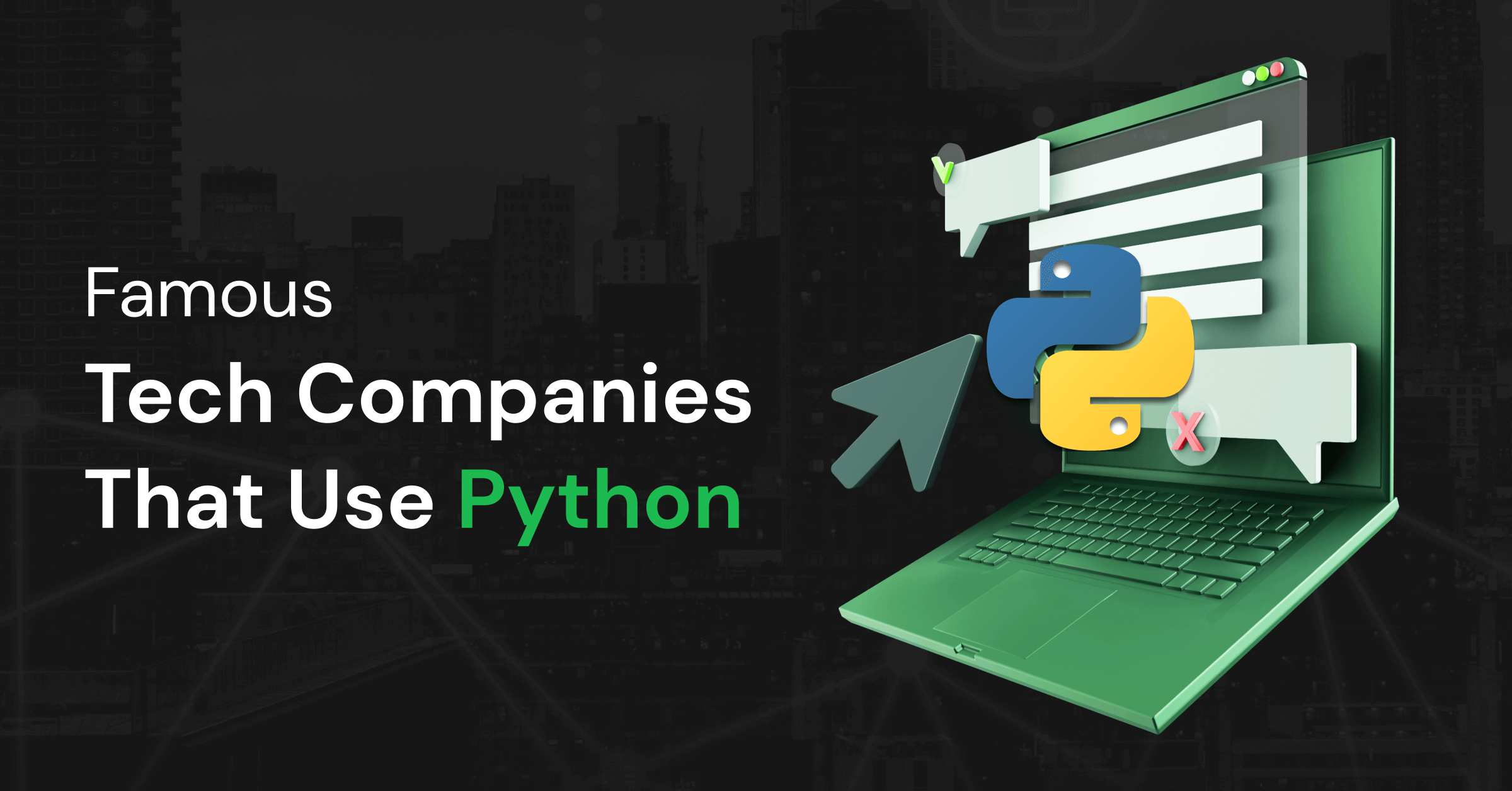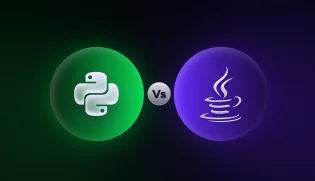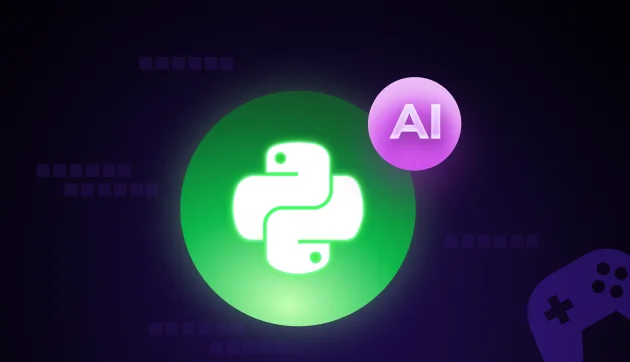
Top 5 Reasons to Choose Python for Game Development
Feb 18, 2025 3 Min Read 4464 Views
(Last Updated)
Many of us have had fun navigating the Flappy Bird through a bunch of obstacles, haven’t we? We all have played or are interested in mobile, PC, or PlayStation games. It is entertaining and stress-relieving. But, have you ever thought about how these games work?
Python for game development refers to the process of designing, developing, and releasing a game. It entails concept generation, design, construction, testing, and distribution. A game programmer brings a video game to life by writing code.
This code controls everything from how fast your character runs and jumps to how many enemies appear as well as how they react when attacked.
Table of contents
- 5 Reasons to Choose Python for Game Development
- #1 Easy To Use
- #2 Best Features
- #3 Constructing GUI
- #4 Develop Games with Deep Learning
- #5 Python can handle Large Data Sets
- Concluding Thoughts...
- Can I make 3D games with Python?
- Which games use Python coding?
- Can I use Python with Unreal engine?
- Can you use Python in Unity?
5 Reasons to Choose Python for Game Development
Hundreds of programming languages are available today, ranging from classics like C and C++ to recent additions like Ruby, C#, and Lua, as well as enterprise behemoths like Java. It is difficult to decide which language to use for game development.
Python programming has become a common choice among game developers for rapid prototyping games due to its various game development frameworks.
In this article, we will look at five compelling reasons to use Python for game development.
Before diving into the next section, ensure you’re solid on Python essentials from basics to advanced. If you are looking for a detailed Python career program, you can join GUVI’s Python Career Program with placement assistance. You will be able to master the Multiple Exceptions, classes, OOPS concepts, dictionary, and many more, and build real-life projects.
Instead, if you would like to explore Python through a Self-paced course, try GUVI’s Self Paced Python course
#1 Easy To Use
- Python is very easy and simple to learn for programmers who are already familiar with conventional languages.
- Loops, conditional statements, arrays, and other familiar constructs are all included and are simpler to use in Python.
- Though Python is simple to learn and use for analysts, it is versatile enough to solve even the most complicated problems in almost any domain.
- Python has a simple syntax that helps even beginners to quickly learn Python and write code.
- The clean and readable syntax rules make it much simpler to keep the code base readable and the functionality maintainable.
- It also helps to debug code easily and helps in rapid application development.
#2 Best Features
- Python is one of the most widely used programming languages due to its extensive library support. Modules for handling email, web pages, databases, operating system calls, GUI creation, and more are included in the Python standard library.
- Python has a higher level of abstraction than most other programming languages. This is due in part to the way the language is designed and in part to the broad standard code library that comes with the Python distribution.
- Python is an excellent cross-platform language. It runs on a variety of platforms, including Windows, Mac OS X, Linux, UNIX, and others. Being an interpreted language, it can run on any platform that has a Python interpreter, which almost all current platforms do.
- Python has many variants that operate on Java (Jython) and .NET (IronPython), allowing you to run it on multiple platforms.
- Python has a clean and readable syntax hence it is well-suited for rapid application development.
- A single line of Python code can accomplish more than a single line of code in most other programming languages. This makes it easier to debug and manage Python codes.
#3 Constructing GUI
- Python provides a number of options for creating GUI (Graphical User Interface). The majority of game programming is controlled by this graphical user interface (GUI). All the desired functions of the game are performed within this window.
- The GUI interface window can be used in a variety of potential machine learning or deep learning projects, where you can use the interactivity you have achieved in a variety of ways to improve the design, style, and appearance of the game.
- The most widely used GUI toolkit is Tkinter. It is a standard Python interface to the Python-supplied Tk GUI toolkit. The fastest and simplest way to build GUI applications is with Python and Tkinter.
- Along with Tkinter, a range of other cross-platform implementations as well as bindings to individual platforms, are also among the many GUI frameworks (or toolkits) available for Python.
#4 Develop Games with Deep Learning
- Artificial Intelligence (AI) has a major influence on game development. Video game development studios are gradually turning to AI as a tool in the search for more realistic environments, captivating challenges, and exclusive content. AI learning algorithms can dynamically adapt to a player’s behavior.
- All modern games are backed up by massive improvements and advances in the field of artificial intelligence, especially when it comes to enemy AI or non-playable characters (NPCs) in video games.
- Deep learning and reinforcement learning are critical in the advancement of Artificial Intelligence, allowing it to perform extremely complex tasks with ease, such as playing games with ease and hitting the desired finish line after several training iterations.
- In Chess, Go, and other multiplayer strategy video games, state-of-the-art reinforcement learning implementations have been used to beat best-in-class human players.
#5 Python can handle Large Data Sets
- Python has numerous libraries like Pandas, NumPy and Sklearn which help it to handle large datasets easily.
- Pandas is a fantastic library for manipulating data tables.
- Its dataframe construct, similar to the R ecosystem, provides a very efficient workflow for data analysis. It is reasonably simple, has a lot of features, and is well-documented. It has developed itself as a vital tool for data scientists who use Python.
- Dask is another Python library that helps in handling large datasets. It has been developed to run through several systems and is regarded as a parallel computing library.
- Dask uses multi-core CPUs to effectively perform parallel computations on a single processor.
Kickstart your Data Science journey by enrolling in GUVI’s Python Career Program where you will master technologies like multiple exceptions, classes, OOPS concepts, dictionaries, and many more, and build real-life projects.
Alternatively, if you would like to explore Python through a Self-Paced course, try GUVI’s Python Self Paced course
Concluding Thoughts…
When it comes to game programming, it is vital to choose the right tool for specific tasks, so we need to be familiar with the features of the particular programming language.
The more we understand the different programming languages available, the easier it will be to optimize the process of game development.
Python has become an excellent choice for developers due to its various features and frameworks for game development.
Yes, you can create 3D games with Python using libraries such as Panda3D, Pygame, and Godot Engine’s Python API.
Some notable games that use Python include “Eve Online” for scripting, “Civilization IV” for its AI and game logic, and “Battlefield 2” for its server controls.
Yes, Python can be used in Unreal Engine for scripting and automating tasks, although C++ and Blueprints are the primary languages for game development in Unreal.
Unity primarily uses C# for scripting, but you can integrate Python for certain tasks via external plugins and tools like Unity-Py or Python for Unity.





















Did you enjoy this article?